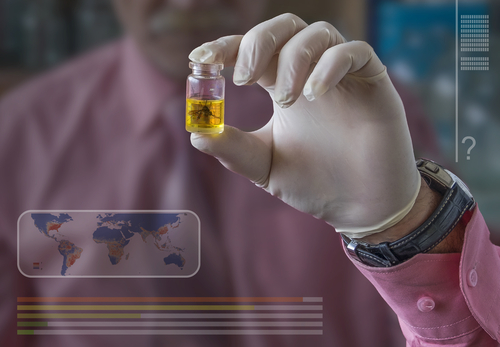Researchers develop climate-based dengue forecasting model
IANS Sep 04, 2017
Examining what climatic factors help spread dengue in India, researchers have found that a rise in temperature from 17 to 30 degrees Celsius can increase transmission of the mosquito-borne disease fourfold.

However, a further increase in temperature beyond 35 degrees Celsius is detrimental to the mosquito survival, showed the findings published in the journal Emerging Microbes & Infections.The study was conducted by the University of Liverpool Britain in collaboration with the Hyderabad-based Indian Institute of Chemical Technology (IICT) and National Institute of Pharmaceutical Education and Research (NIPER), Guwahati."This climate-based dengue forecasting model could help health authorities to assess the disease intensity in a geographic region, based on that they can plan disease control operations well in advance and optimize the use of resources meticulously," said Srinivasa Rao Mutheneni of IICT, who led the study and worked on this project during his visit to Liverpool as a University of Liverpool Indian Research Fellow.
The researchers evaluated the relationship of climatic factors in the spread of dengue in different climatic zones in the country through the states of Punjab, Haryana, Rajasthan, Gujarat and Kerala.They focused on changes in a factor called "extrinsic incubation period (EIP)" of the dengue virus by taking into account daily and monthly mean temperatures in these areas.EIP is the time taken for incubation of the virus in the mosquito. During this period, after the mosquito draws a virus-rich-blood meal, the virus escapes the gut, passes through the mosquito's body and reaches its salivary glands. Once this happens, the mosquito is infectious and capable of transmitting the virus to a human host.Lower temperatures (17-18 degrees Celsius) result in longer incubation period thereby leading to decreased virus transmission. With increasing temperatures, feeding increases because of enhanced metabolism of the mosquito, leading to shorter incubation period.
Even a five-day decrease in the incubation period can hike transmission rate by three times, and with an increase in temperature from 17 to 30 degrees Celsius, dengue transmission increases fourfold, the results showed. The researchers observed that except for Gujarat which comprises of arid regions, there was a strong correlation between rainfall and dengue disease burden.An increase in breeding grounds for mosquitoes could be a major reason for this finding, according to the researchers. The study found that Kerala being warm (temperature range 23.5-30 degrees Celsius) and wet and with short incubation period (9-14 days) experiences the highest number of dengue cases. The incubation period is the shortest during the monsoon season in most states and therefore there is an enhanced risk of dengue during this time, the researchers found.
-
Exclusive Write-ups & Webinars by KOLs
-
Daily Quiz by specialty
-
Paid Market Research Surveys
-
Case discussions, News & Journals' summaries